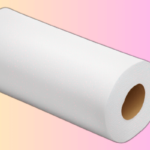Granite and ceramic cookware are both popular choices for the kitchen, but they have some key differences to consider. Granite cookware is known for its durability and scratch-resistant surface, making it great for high-heat cooking. It also has a non-stick surface, which means you can cook with less oil, making it a healthier option.
On the other hand, ceramic cookware is known for its non-reactive nature, meaning it won’t leach any chemicals or flavors into your food. It also distributes heat evenly, making it great for cooking delicate dishes. However, it may not be as durable as granite cookware and can chip or crack if not handled carefully.
Ultimately, the choice between granite and ceramic cookware will depend on your cooking needs and preferences. Consider factors such as durability, heat distribution, and ease of cleaning before making your decision.
The Benefits of Granite Cookware
Granite cookware is an excellent choice for many reasons. It is highly durable and scratch-resistant, making it perfect for high-heat cooking methods. Its non-stick surface also allows for cooking with less oil, promoting healthier meal preparation. On the other hand, ceramic cookware is known for its non-reactive nature, meaning it won’t leach any chemicals or flavors into your food.
It also distributes heat evenly, making it great for cooking delicate dishes. However, it may not be as durable as granite cookware and can chip or crack if not handled carefully. Ultimately, the choice between granite and ceramic cookware will depend on your cooking needs and preferences.
The Benefits of Ceramic Cookware
Ceramic cookware offers a number of benefits that make it a popular choice for many home cooks. One of the key advantages of ceramic cookware is its non-reactive nature, meaning it won’t leach any chemicals or flavors into your food. This is the safe and healthy for cooking options. Additionally, ceramic cookware distributes heat evenly, making it great for cooking delicate dishes that require precise temperature control.
Another benefit of ceramic cookware is its non-stick surface, which allows for cooking with less oil, promoting healthier meal preparation. This makes it a great option for those looking to reduce their fat intake or for individuals following a heart-healthy diet. However, it’s important to note that ceramic cookware may not be as durable as other materials and can chip or crack if not handled carefully.
When comparing ceramic cookware to granite cookware, it’s important to consider factors such as durability, heat distribution, and ease of cleaning before making your decision. Ultimately, the choice between ceramic and granite cookware will depend on your cooking needs and preferences.
Durability Comparison
When comparing ceramic cookware to other materials such as granite, it’s important to consider the durability of each option. Ceramic cookware is known for its non-reactive nature, meaning it won’t leach any chemicals or flavors into your food, making it a safe and healthy option for cooking. It also distributes heat evenly, making it great for cooking delicate dishes that require precise temperature control. Additionally, ceramic cookware has a non-stick surface, allowing for cooking with less oil, promoting healthier meal preparation.
However, it’s important to note that ceramic cookware may not be as durable as other materials and can chip or crack if not handled carefully. On the other hand, granite cookware is known for its durability and resistance to chipping and cracking, making it a long-lasting option for cooking. When comparing ceramic and granite cookware, it’s important to consider factors such as heat distribution, ease of cleaning, and cooking needs before making a decision.
Ultimately, the choice between ceramic and granite cookware will depend on your specific cooking preferences and needs. Both options have their own advantages and it’s important to weigh the pros and cons before making a decision.
Heat Retention and Distribution
These are important factors to consider when choosing cookware. Ceramic cookware is known for its ability to retain and distribute heat evenly, making it a great option for cooking delicate dishes that require precise temperature control. It also has a non-reactive nature, meaning it won’t leach any chemicals or flavors into your food, making it a safe and healthy option for cooking. Additionally, the non-stick surface of ceramic cookware allows for cooking with less oil, promoting healthier meal preparation.
On the other hand, granite cookware is known for its durability and resistance to chipping and cracking, making it a long-lasting option for cooking. When comparing ceramic and granite cookware, it’s important to consider factors such as heat distribution, ease of cleaning, and your specific cooking needs before making a decision. It’s also important to note that ceramic cookware may not be as durable as other materials and can chip or crack if not handled carefully.
Non-Stick Properties
Ceramic cookware is known for its non-stick properties, making it a great option for cooking delicate dishes that require precise temperature control. It also has a non-reactive nature, meaning it won’t leach any chemicals or flavors into your food, making it a safe and healthy option for cooking. Additionally, the non-stick surface of ceramic cookware allows for cooking with less oil, promoting healthier meal preparation.
On the other hand, granite cookware is known for its durability and resistance to chipping and cracking, making it a long-lasting option for cooking. When comparing ceramic and granite cookware, it’s important to consider factors such as heat distribution, ease of cleaning, and your specific cooking needs before making a decision. It’s also important to note that ceramic cookware may not be as durable as other materials and can chip or crack if not handled carefully.
Certainly, the choice between ceramic and granite cookware will depend on your specific cooking preferences and needs. Both options have their own advantages and it’s important to weigh the pros and cons before making a decision.
Maintenance and Care
Both ceramic and granite cookware require proper maintenance and care to ensure their longevity and effectiveness. Ceramic cookware should be handled with care to prevent chipping or cracking, and it’s important to avoid using metal utensils that can scratch the non-stick surface. It’s also recommended to hand wash ceramic cookware to preserve its non-stick properties.
On the other hand, granite cookware is known for its durability and resistance to chipping and cracking, but it’s still important to handle it with care to prevent any damage. Both types of cookware should be cleaned according to the manufacturer’s instructions to maintain their non-stick properties and overall performance. By properly maintaining and caring for your ceramic or granite cookware, you can ensure that it continues to meet your cooking needs for years to come.
Environmental Impact
When choosing between ceramic and granite cookware, it’s important to consider the environmental impact of each option. Ceramic cookware is typically made from natural materials like clay and water, making it an eco-friendly choice. However, it’s important to note that the manufacturing process for ceramic cookware involves high-temperature firing, which can contribute to air pollution.
On the other hand, granite cookware is often made from a combination of natural stone and other materials, which may have a higher environmental impact in terms of resource extraction and production. When it comes to disposal, both ceramic and granite cookware can be challenging to recycle due to their composition.
Ultimately, the environmental impact of your cookware choice will depend on factors such as manufacturing processes, material sourcing, and end-of-life disposal. It’s important to weigh these considerations and choose the option that aligns with your environmental values and goals.
Cost Comparison
When comparing the cost of ceramic and granite cookware, it’s important to consider both the initial investment and long-term durability. Ceramic cookware is often more affordable than granite cookware, making it a budget-friendly option for many consumers.
However, it’s important to note that ceramic cookware may not be as durable as granite cookware, so you may need to replace it more frequently. On the other hand, granite cookware tends to be more expensive upfront, but its durability can make it a cost-effective choice in the long run.
Granite cookware is also less prone to scratches and can withstand higher cooking temperatures, which may further extend its lifespan. Ultimately, the cost of your cookware will depend on your budget and cooking needs. It’s important to weigh the initial cost against long-term durability to make the best decision for your kitchen.
Which Cookware is Right for You?
When choosing the right cookware for you, there are a few factors to consider. One important factor to consider is the environmental impact of the cookware. This includes the manufacturing processes, material sourcing, and end-of-life disposal. It’s important to choose cookware that aligns with your environmental values and goals.
Another consideration is the cost comparison between different types of cookware. Ceramic cookware is often more affordable than granite cookware, making it a budget-friendly option.
However, ceramic cookware may not be as durable as granite cookware, so it may need to be replaced more frequently. On the other hand, granite cookware may be more expensive upfront, but its durability can make it a cost-effective choice in the long run. It’s important to weigh the initial cost against long-term durability based on your budget and cooking needs.
Finally, the right cookware for you will depend on your priorities, whether they be environmental impact, cost, or cooking performance. It is very potential to consider all of these factors before making a final decision.
Conclusion
In conclusion, when choosing cookware, it’s important to consider your environmental values, budget, and cooking needs. Ceramic cookware is affordable but may not be as durable, while granite cookware may be more expensive upfront but offers better long-term durability.
Consider your priorities and weigh the initial cost against long-term benefits to make the best decision for your cooking needs. Ultimately, the right cookware for you will depend on your unique circumstances and values.
As an Amazon Associate, I earn from qualifying purchases.



